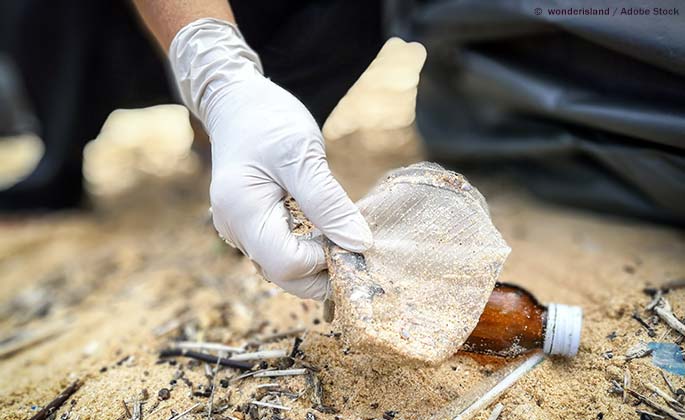
According to a press release issued by the United Nations Environment Program, roughly 150 million tons of plastic waste has polluted the oceans, with a garbage truck full of the stuff entering every minute. But how does one divert plastic waste away from the planet’s waterways so that it does not become a source of harm to marine life? An entrepreneur named David Katz has founded a company called Plastic Bank that seeks to address the problem and allow people to make a little money while doing so.
Most plastic has some value as a material for recycling. One reason that plastic bottles, bags, and other materials go into the curb pickup recycling bins is that they are relatively easy to convert to created products. Katz is expanding the system to the developing world, where plastic pollution and poverty are the most acute, and arrange for one to help address the other.
The system works by people, instead of tossing their plastic waste out, taking it to a recycling bank located at a local business, such as a gas station, in exchange for money. The idea is that people living in the developing world will come to understand that plastic is not just waste, but rather a source of wealth, to be gathered up and turned into money that can then be used to buy useful things. The collecting point then ships the product to a recycling center to create raw material for manufacturing.
Plastic Bank started in Haiti in 2015 with considerable success. The non-profit company then expanded to the Philippines the following year. Plans are being made to expand into Brazil, Indonesia, Ethiopia, and India.
The beauty of Katz’s enterprise is that it recruits millions of ordinary people worldwide to address the problem of plastic pollution by monetizing the recycling process and putting much-needed cash in their pockets. The system has every potential to both be self-sustaining and expansive.




































































































































 Three Ways to Engage Teams and Clients to Maximize Your Recycling Program Engagement
Three Ways to Engage Teams and Clients to Maximize Your Recycling Program Engagement  How to Integrate Accessibility Into Your Sustainability Planning
How to Integrate Accessibility Into Your Sustainability Planning  Why Park Benches Can Promote Workplace Well-Being
Why Park Benches Can Promote Workplace Well-Being 
